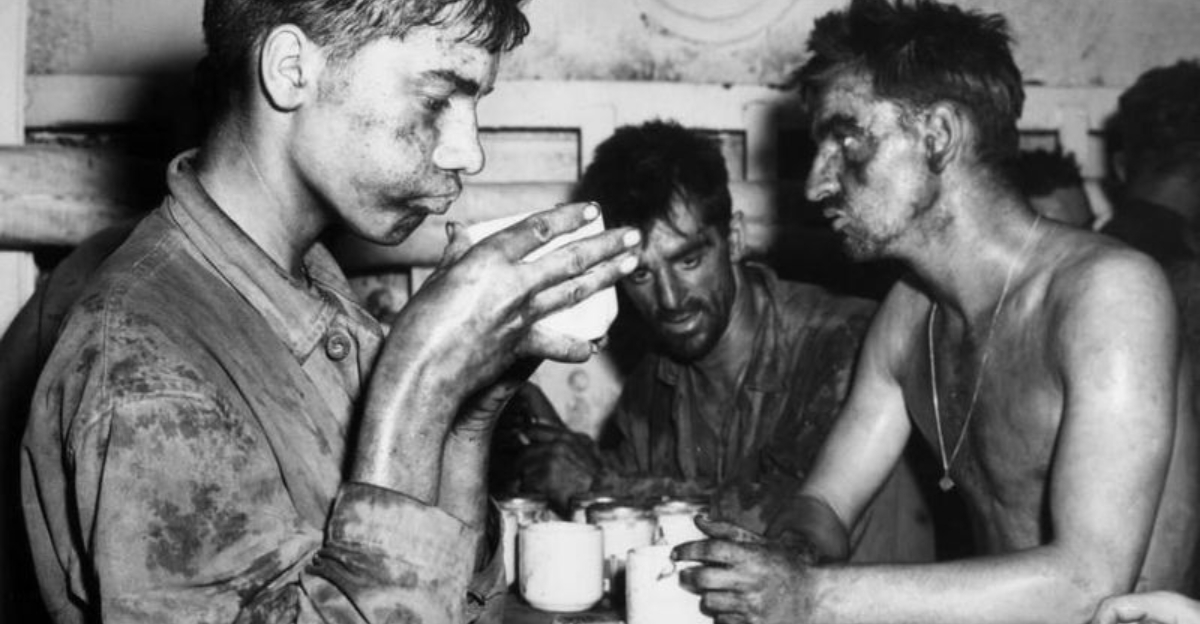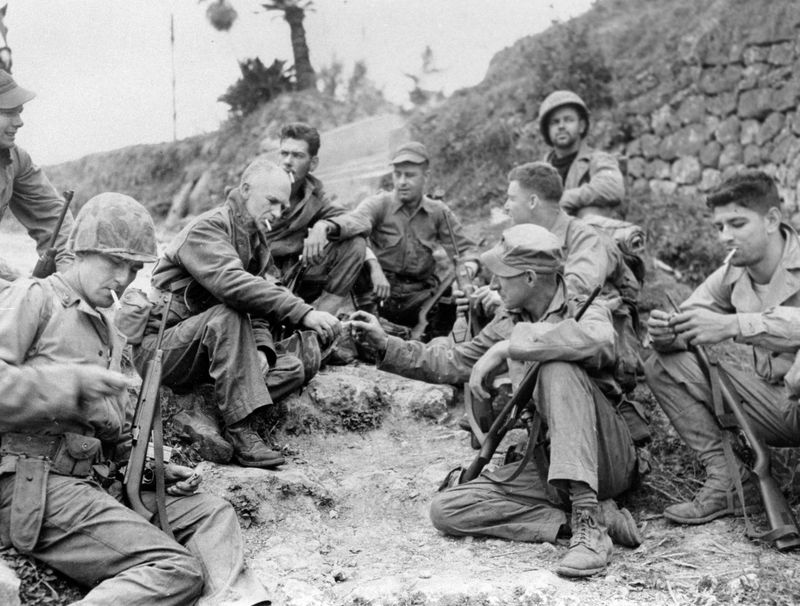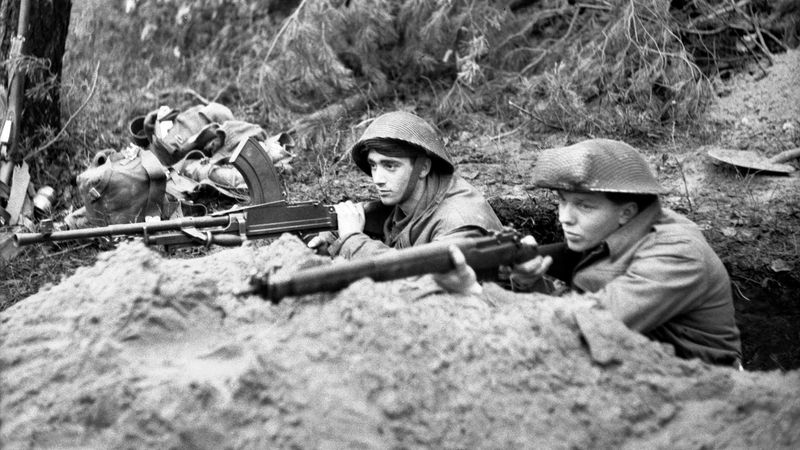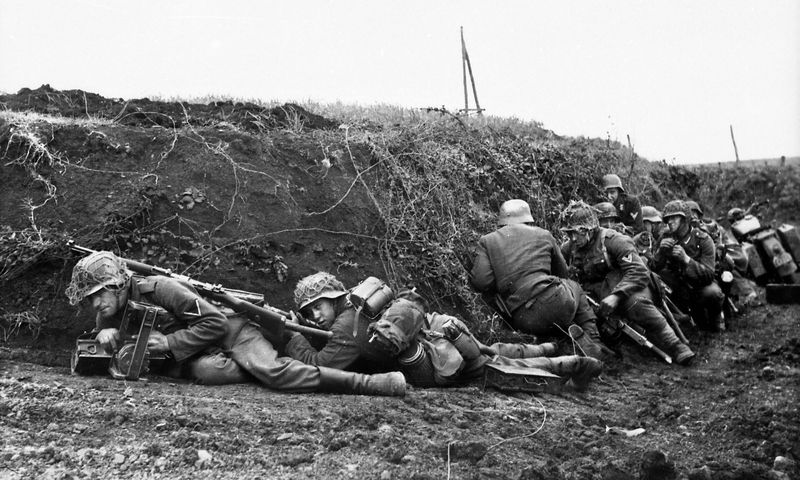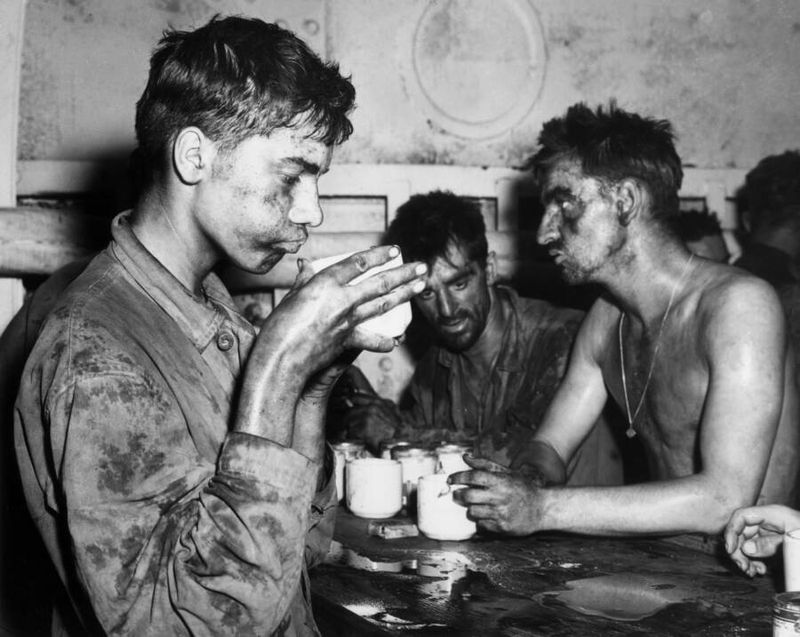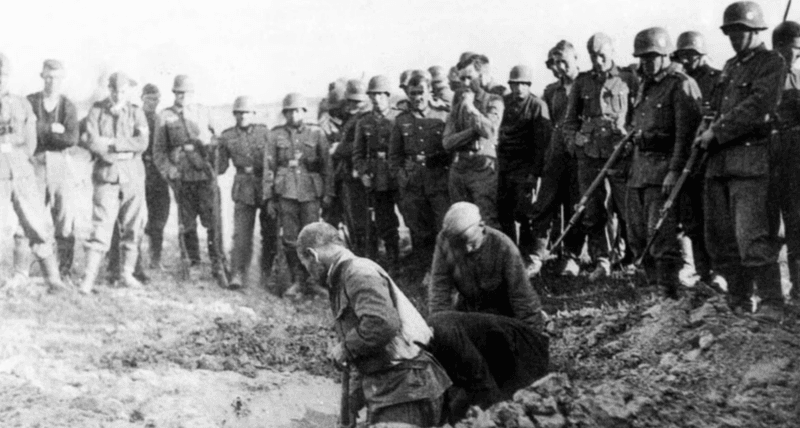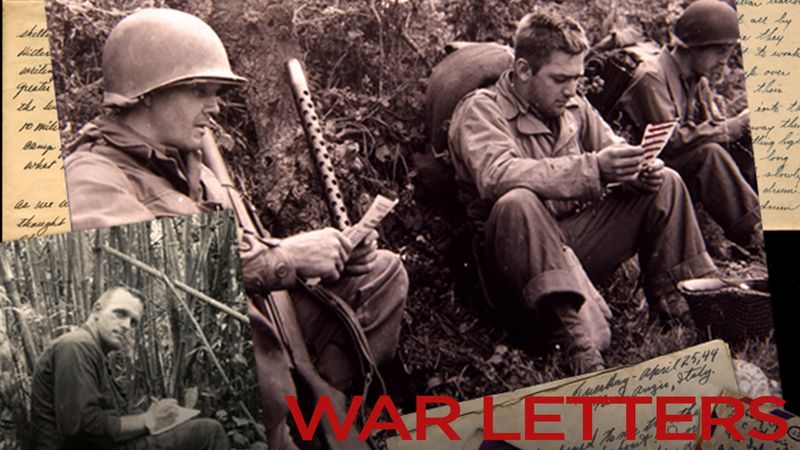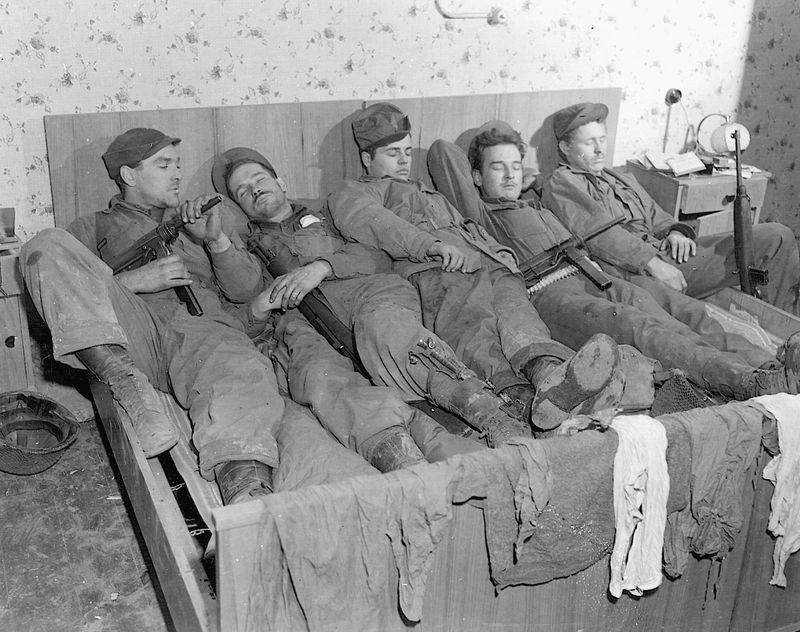The daily reality for soldiers fighting in World War II was far from the glorified version often portrayed in movies. These brave men faced constant danger, extreme discomfort, and psychological strain while battling across Europe in 1945. Their routines were dictated by survival, combat readiness, and brief moments of humanity snatched between the chaos of war.
1. 🌅 5:00 AM – Dawn: Wake-Up & Brief Respite
The frigid morning air stung exposed faces as soldiers stirred from whatever shallow sleep they’d managed. Foxholes—just deep enough to shield a man from shrapnel—doubled as uncomfortable beds, often filling with rainwater or snow overnight.
Breakfast meant fumbling with tin cans of cold hash or powdered eggs, forcing down sustenance that barely resembled food. The lucky ones might heat coffee using small fuel tablets, the warm liquid offering momentary comfort.
Sergeants moved through the lines, checking ammunition supplies and distributing orders for the day’s objectives. Men listened silently, knowing each mission could be their last.
2. ⚔️ 6:00 AM – Patrols & Combat Readiness
Squads of four to six men ventured cautiously into no-man’s-land, crawling through frost-covered fields to gather intelligence on enemy positions. Every rustle could signal a hidden sniper; every metallic click underfoot might mean a landmine.
Back at camp, soldiers meticulously field-stripped their weapons. Cleaning rods pushed through barrels, removing yesterday’s carbon buildup that could cause fatal jams. The rhythmic motion offered a meditative moment amid chaos.
Artillery crews calculated firing solutions while machine gunners established interlocking fields of fire, preparing for the inevitable German counterattack that often came with daylight.
3. 💥 8:00 AM – Firefight or March
The distinctive crack of MG42s—German machine guns that soldiers called “Hitler’s buzzsaw”—often shattered the morning calm. Men dove for cover, pressing themselves into the earth as bullets snapped overhead like angry hornets.
Combat medics carrying nothing but bandages and morphine syrettes crawled between casualties, performing miracles under fire. Their red cross armbands offered little protection from snipers who sometimes targeted them first.
For units not in active firefights, endless marching dominated the morning. Soldiers trudged through bombed-out villages where civilians watched with hollow eyes, their 60-pound packs digging into shoulders already raw from yesterday’s march.
4. 🕛 12:00 PM – A Rare Moment of Rest
Midday brought brief pauses in the fighting—moments soldiers cherished like gold. Sitting with backs against tree trunks or crumbling walls, they unwrapped precious letters from home, some so worn from repeated readings that the creases threatened to tear.
Food came from more tin cans or occasionally from local villages. The universal currency of chocolate bars and cigarettes could sometimes procure fresh bread or eggs from desperate civilians.
Some men wrote replies on whatever paper scraps they could find, knowing mail might take weeks to reach America. Others simply closed their eyes, catching fragments of sleep with helmets tilted forward—always ready to snap awake at the first sound of danger.
5. ☢️ 2:00 PM – The Grind Continues
Afternoon hours blurred into endless labor. Blistered hands gripped entrenching tools, digging defensive positions that might mean the difference between life and death when darkness fell. The rhythm of shovel hitting soil became hypnotic—a momentary distraction from fear.
Captured German soldiers sat under guard, often looking startlingly young or disturbingly old as Hitler’s army scraped the bottom of its manpower barrel. American guards offered occasional cigarettes, recognizing a shared humanity despite the uniform differences.
Supply runners moved between companies, distributing precious ammunition. Bandoliers crossed chests while grenades dangled from belts. Veterans knew to salvage cartridges from the fallen—both friend and foe—knowing supply lines could be cut at any moment.
6. 🌆 6:00 PM – Evening Stand-Down (If No Battle)
Twilight brought momentary reprieve if no engagement loomed. Helmets became makeshift basins for shaving with cold water and dull razors—maintaining some semblance of civilization despite the barbaric surroundings. Steam rose from canteen cups as soldiers heated whatever drink powder their rations provided.
Small circles formed naturally as daylight faded. Dog-eared playing cards appeared from breast pockets, dealt on upturned ammunition crates. Someone might produce a harmonica, its melancholy tunes carrying across the lines.
By lamplight, personal diaries recorded the day’s events in sparse, understated language. “Lost Johnson today. Artillery. Quick at least.” Such simple words masked unspeakable trauma, preserving sanity through emotional distance.
7. 🌙 9:00 PM – Night Watch or Sleep (If Possible)
Darkness transformed the battlefield into a realm of shadows and whispers. Two-hour watch rotations meant tapping your replacement gently—a startled man might fire his weapon reflexively. Eyes strained to interpret shapes in the blackness while ears became the primary defense.
The distinctive rumble of German Panzer tanks could be felt through the ground before being heard. Veterans knew to distinguish between friendly artillery and incoming shells by their unique whistling signatures.
Those blessed with off-watch hours wrapped themselves in wool blankets that never quite blocked the cold. Sleep came in fragments, punctuated by illumination rounds that turned night to eerie day for brief, heart-stopping moments. Dreams of home mixed with nightmares that weren’t always distinguishable from reality.
